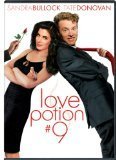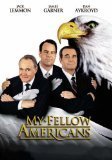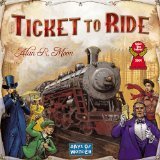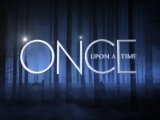Bryce Moore's Blog, page 263
October 8, 2012
Potions and Bites: Vodnik Chapter Twenty-Two
 Two things to comment on in this chapter: potions and the effects of a vodnik's bite. First up, potions. When I was about five or six, I was obsessed with making potions in the bathtub. I'd combine shampoos, soaps, gels--anything I could get my hands on, all in an effort to make some magical anything. It just made sense to me that all I had to do was find the right combination to be able to do something that had never been done before. Of course, I never succeeded--but I took that same idea and made it the basis for potions in this book.
Two things to comment on in this chapter: potions and the effects of a vodnik's bite. First up, potions. When I was about five or six, I was obsessed with making potions in the bathtub. I'd combine shampoos, soaps, gels--anything I could get my hands on, all in an effort to make some magical anything. It just made sense to me that all I had to do was find the right combination to be able to do something that had never been done before. Of course, I never succeeded--but I took that same idea and made it the basis for potions in this book.I really like the idea that magic exists in the world, and it doesn't necessarily take anything super to do it--you just need to know how to put things together in the right way. Pig urine, herbs harvested by moonlight--nothing that's as obscure as Eye of Newt (although come to think of it, that would be fairly easy to come by, too--I suppose I'm thinking more of something like Unicorn Horn or Powdered Griffon Wing.)
As for the effects of a vodnik's bite, to the best of my knowledge, nothing's supposed to happen--according to folklore. Vodniks don't bite people. They drown them. When the vodnik bit Lesana and then Tomas in the book, I had no idea what sort of effect it might have. I came up with the "alternate way to steal a soul" on my own, combining a little bit of werewolf lore into the Slovak legend. This ended up being key to the story, of course--since it's the device that makes everything be so rushed at the end (Tomas being out of it as he recovered from the bite.) It's also an element that ties the Lesana story more closely to Tomas's. She gets bit, and we see the effects. Hopefully readers started wondering what would happen to Tomas when he got bit--before Tomas starts wondering himself.
Anyway--not much else to report for this chapter. Thanks for reading!

Published on October 08, 2012 12:30
October 5, 2012
Claustrophobia, Plumbing, and Plastic

 Guess what I'm doing tomorrow? I get to go down to my crawl space and run new plumbing and lay down plastic sheeting in prep work for getting my basement insulated in a few weeks.
Guess what I'm doing tomorrow? I get to go down to my crawl space and run new plumbing and lay down plastic sheeting in prep work for getting my basement insulated in a few weeks.In theory, this should be a fairly straightforward job. I mean, crawlspaces are supposed to be well laid out, and there should be a fair bit of room, right?
Not in an 1841 farmhouse, my friend.
Tuesday I spent the day moving a whole bunch of trash out of the crawlspace. I found a shovel, an ammo box, scissors, sweatpants, gloves, a ton of ratty insulation, and more rusty metal than you can shake a fist at. But even with all of that gone, my crawlspace is far from level. It's got this huge mound of dirt down the middle of it. Part of it is downright cramped.
I am *not* a fan of cramped. I wouldn't call myself a full-blown claustrophobe, but . . . I've been dreading going back since I was down there Tuesday. Like in an "Is there any way I can get out of this?" sort of a dread.
There isn't.
Why am I doing all of this?
The new plumbing is just an effort to update the house. The old plumbing is a mutt of different types. Copper, plastic--you name it. Different sizes, different layouts. We only have a bathroom and a kitchen. The hot water to the kitchen now takes about 8 years to come on, mainly because we re-routed where the hot water source is back when we got our tankless water heater. So this is an effort to update and to make it easier to get that hot water.
The plasticking is prep work for the insulation, like I said. We're getting spray foam put in all along the basement walls, which should act as a water barrier, air barrier, and insulator. We have cold floors in the winter, and this is an effort to correct that. The thing is, when they spray it all in, it makes the basement a lot more air-tight. When you've got a lot of dirt floor, that can make moisture a real problem. (All that dirt somehow lets moisture into your house in a way I don't quite understand.) So you put the plastic sheeting down to act as a vapor barrier, keeping the nasty moisture away from your moisture-hating house.
It will all be done by Saturday afternoon. I just have to keep telling myself that.
You all have a lovely weekend, though.

Published on October 05, 2012 08:57
October 4, 2012
My Thoughts on the Debate
 Yes, I watched the debate last night. I waffled a little on whether I would or not. I knew it would likely only aggravate me, but in the end, being "politically informed" won out over having an enjoyable quiet evening at home.
Yes, I watched the debate last night. I waffled a little on whether I would or not. I knew it would likely only aggravate me, but in the end, being "politically informed" won out over having an enjoyable quiet evening at home.What did I think?
I thought it was like Hungry Hungry Hippos out there. Jim Lehrer did an abysmal job keeping either candidate in check. Both Romney and Obama would just go on and on, steamrolling right over any feeble Lehrer complaints. (Romney's getting pointed at for being meaner than Obama in this regard, but I think that's just because Romney was coming off as more confident and assertive. Obama ended up speaking 3 or 4 minutes longer over the course of the evening.)
Heading into the debate, I was pretty sure most pundits would call it in favor of Romney, just because if Obama wiped the floor with Romney, then the election might well be decided already, and what the pundits all want is an election that goes down right to the wire. It makes for better television. That said, I certainly did NOT expect viewers to come away so convinced that Romney did better. (Something like 67% thought this, according to a CNN poll.) Obama just looked uncomfortable and like he'd rather be at home watching some sports. (Not that I blame him. I had the Yankees/Red Sox game on as well, and I was organizing Magic cards at the same time. Triple multi-tasking. Oh yeah.)
Of course, now all the fact checking begins, and the who said what, and what does ______ think about it, etc. I get the fact checking in theory, but to me, it's all sort of like reviewing a game after the outcome has already been decided. Yes, you can find questionable play calls, but so what? It's over. The time for fact checking is on the debate floor. If somebody's lying, you need to call him on it right that second, or you lose. Obama did very little of that.
Romney's being accused of having little in the way of specifics, but again, that's sort of what Obama did 4 years ago. Promise the world, but don't lay out the nuts and bolts of how you're going to accomplish it. Are we really surprised politicians do this?
Some specific comments I wanted to make:
Ditching PBS and Big Bird--Romney talked about how he didn't want to take a loan from China to pay for PBS. I get that. Critics say the PBS budget is .012% of the government's budget, so it would be like me cutting $5 from my yearly expenditures. I get that. But I do believe that there's a mindset you need to get into if you're going to successfully start saving money. $5 purchases do add up over time. So as much as I like Big Bird, I'd have to say I come down with Romney on this one.
The slew of numbers--Both candidates were really big on throwing up a smokescreen of numbers last night. I don't buy any statistics, any studies, any estimates, any numbers--period. I'm convinced that anyone can crunch the numbers to make them look favorable to whatever argument they're making. Statistics and estimates are just examples of lying with a veneer of truth. So any argument that comes down to projections about future spending . . . I just sort of ignore. Arguments based on past numbers--hard data--those are more difficult to tweak, and I give them at least some credence. But even then, it's all how you spin them, so I remain skeptical.
Green Energy--$90 billion given to green energy companies? Really? I felt like this was one of Romney's strongest arguments against Obama. I'm all for green energy, and I try to pinch my pennies where I can, while still being environmentally minded. But I haven't taken out a loan to get solar power, or a wind mill. To fend off this attack, Obama needs to show my why those companies needed that money, and how it ended up saving the country in the last four years. (If it did.)
Obamacare--I still come down in favor of the law, mainly because I felt like the current system was broken and stuck in governmental gridlock. I still hold out hope that by finally passing something, politicians might just be able to come up with a real solution more people can be happy with. As for the argument that Romney made the basis of Obamacare in Massachusetts, I think Romney should just point out that he's favoring a state-by-state solution. If MA wants to do healthcare one way, and MO wants to do it another, they should be able to do that. (Although I don't know how feasible that is.)
Here's the thing: watching the debate and my Twitter and Facebook feeds at the same time, all I'm really certain of is that people on both sides are firmly entrenched in their opinions. Democrats were talking about how awful Romney was doing. Republicans were talking about how awful Obama was doing. (Well, actually, I suppose a fair number of Democrat friends were railing at how awful Obama was doing, too. I suppose that says something right there . . .)
At this point in time, I've got friends on both sides who can't be convinced to switch, period. And as I've thought about it, I think I've come up with the reason people like politics so much. It's like sports, but you never have to lose. There's never a final buzzer. The next season starts as soon as the last season ends. You can pick your side and focus solely on why it's right and the other side is wrong, and you never ever have to concede you picked the wrong horse. There are no refs, even.
Going into the debate, I was leaning Romney. I voted for Obama four years ago. I'm still not certain who I'll vote for this time around. I went with Obama four years ago because I felt like the Republicans had had their chance and done zilch with it, so why not give the Democrats a shot? That's the same sentiment that's got me leaning Romney now. But in the end, I'm really not convinced either one of them will make any difference, mainly because all they're vying for is the chance to argue with Congress, the biggest assembly of Grade A Nincompoops on the planet. Romney or Obama--neither one of them will get anything accomplished, because Congress won't let them.
Not that I feel disillusioned at all.
But enough about me. What did you think about the debate? And keep it civil, folks.

Published on October 04, 2012 06:19
October 3, 2012
New Author: Janci Patterson's CHASING THE SKIP

 I first met Janci in Brandon Sanderson's writing group. Must've been about seven years ago, give or take. (Hard to believe it's been that long!) She's been in various writing groups of mine now for over three of those seven years. She's a great writer, and I'm really excited to be able to tell you all about her first book to be published: Chasing the Skip
I first met Janci in Brandon Sanderson's writing group. Must've been about seven years ago, give or take. (Hard to believe it's been that long!) She's been in various writing groups of mine now for over three of those seven years. She's a great writer, and I'm really excited to be able to tell you all about her first book to be published: Chasing the Skip .
.It's the story of the daughter of a bounty hunter who gets dragged along with him on a job to capture a 17 year old guy who just happens to be kinda cute. No fantasy, no sci-fi--just straight up story.
The book's gotten good reviews from Kirkus and the Deseret News, and I highly encourage all of you to check it out. I haven't read this one yet, but I've read a lot of Janci's other work, and I've enjoyed all of it. If you'd like to read some of the reviews, head on over here.
Congrats, Janci! And best wishes!

Published on October 03, 2012 12:30
October 2, 2012
Is Downtime a Waste of Time?
[image error]
 I've come to the (probably not unforeseeable) conclusion that Magic the Gathering is close to the most perfect game in the world for me. Infinitely replayable, always being updated, fantasy-based theme, and you get to organize things. A lot. You don't get to be a librarian without having a really strong "This Must All Be Put in Order" streak in you somewhere. Yesterday morning, I sat down to reorganize my cards "just for a second." I looked up at the clock, and two hours had gone by.
I've come to the (probably not unforeseeable) conclusion that Magic the Gathering is close to the most perfect game in the world for me. Infinitely replayable, always being updated, fantasy-based theme, and you get to organize things. A lot. You don't get to be a librarian without having a really strong "This Must All Be Put in Order" streak in you somewhere. Yesterday morning, I sat down to reorganize my cards "just for a second." I looked up at the clock, and two hours had gone by.
Also, I hadn't eaten breakfast. And I was too late to eat lunch. I didn't really plan on taking two hours to reorganize pieces of paper, but I had much more fun doing it than you would think should be possible.
Of course, at times it's hard for me to justify my gaming habits to myself. I mean, I went to the Return to Ravnica Prerelease on Saturday (took fourth out of about 25 or 30 people there--not bad for a guy who really has been playing less than a year), but it took seven hours of my day. That's a lot of hours. I did take TRC with me, and we had a really good time together, so that helps, but still--seven hours? That's a chunk of change.
Then again, maybe it just feels worse because Magic the Gathering probably isn't as socially acceptable as, say, watching sports every day. Or watching tons of television. Or working on a hobby. Or [insert other non-life-essential pastime here].
As I think about it, I believe a lot of things look like a waste of time to an outsider. This is why video games get a really bad rap, but then again, ask a teen his or her opinion about more adult activities like gardening or cleaning the house or woodworking, and you're probably going to be told those are a waste of time, too. (Why make my bed? I'm just going to mess it up tonight anyway.)
I believe everybody needs something to do that they enjoy. In an ideal world, they're all able to do that something--have the time to be able to "waste" it on something they choose to do, not on something they must do. I know that when I take the time to do this, I'm generally able to focus more on the rest of my life when it needs my attention.
Though if I were playing Magic for seven hours every Saturday, that would be too much for me--three or four times a year? I can handle that. :-)
Which then leads me to wonder, how much time is too much time? I don't think there's a hard and fast answer to that. Sometimes, you'll have more time available. Is it wrong to enjoy those times to their fullest, knowing that you'll be working non-stop in the future? It all depends on the person and the situation. For me, I try to have an hour or two of downtime each day, on average. I get this at the expense of sleep, usually--if I were sleeping as much as I ought to, I would have no downtime.
How about you--how much time do you give yourself, and what do you choose to do with it?

 I've come to the (probably not unforeseeable) conclusion that Magic the Gathering is close to the most perfect game in the world for me. Infinitely replayable, always being updated, fantasy-based theme, and you get to organize things. A lot. You don't get to be a librarian without having a really strong "This Must All Be Put in Order" streak in you somewhere. Yesterday morning, I sat down to reorganize my cards "just for a second." I looked up at the clock, and two hours had gone by.
I've come to the (probably not unforeseeable) conclusion that Magic the Gathering is close to the most perfect game in the world for me. Infinitely replayable, always being updated, fantasy-based theme, and you get to organize things. A lot. You don't get to be a librarian without having a really strong "This Must All Be Put in Order" streak in you somewhere. Yesterday morning, I sat down to reorganize my cards "just for a second." I looked up at the clock, and two hours had gone by.Also, I hadn't eaten breakfast. And I was too late to eat lunch. I didn't really plan on taking two hours to reorganize pieces of paper, but I had much more fun doing it than you would think should be possible.
Of course, at times it's hard for me to justify my gaming habits to myself. I mean, I went to the Return to Ravnica Prerelease on Saturday (took fourth out of about 25 or 30 people there--not bad for a guy who really has been playing less than a year), but it took seven hours of my day. That's a lot of hours. I did take TRC with me, and we had a really good time together, so that helps, but still--seven hours? That's a chunk of change.
Then again, maybe it just feels worse because Magic the Gathering probably isn't as socially acceptable as, say, watching sports every day. Or watching tons of television. Or working on a hobby. Or [insert other non-life-essential pastime here].
As I think about it, I believe a lot of things look like a waste of time to an outsider. This is why video games get a really bad rap, but then again, ask a teen his or her opinion about more adult activities like gardening or cleaning the house or woodworking, and you're probably going to be told those are a waste of time, too. (Why make my bed? I'm just going to mess it up tonight anyway.)
I believe everybody needs something to do that they enjoy. In an ideal world, they're all able to do that something--have the time to be able to "waste" it on something they choose to do, not on something they must do. I know that when I take the time to do this, I'm generally able to focus more on the rest of my life when it needs my attention.
Though if I were playing Magic for seven hours every Saturday, that would be too much for me--three or four times a year? I can handle that. :-)
Which then leads me to wonder, how much time is too much time? I don't think there's a hard and fast answer to that. Sometimes, you'll have more time available. Is it wrong to enjoy those times to their fullest, knowing that you'll be working non-stop in the future? It all depends on the person and the situation. For me, I try to have an hour or two of downtime each day, on average. I get this at the expense of sleep, usually--if I were sleeping as much as I ought to, I would have no downtime.
How about you--how much time do you give yourself, and what do you choose to do with it?

Published on October 02, 2012 12:30
October 1, 2012
Writing with Weaknesses: Vodnik Chapter Twenty-One
 WARNING: SPOILERS AHEAD
WARNING: SPOILERS AHEADI'll be honest. I'm still not in love with the random wishy-washiness of the Vodnik in this book. He goes from deciding he wants Tomas dead to deciding he wants to help him--back and forth, back and forth--throughout the whole book, and that's behavior that tends to bug me. I like my characters to be consistent. To have a single goal, and do everything they can to achieve that goal.
Then again, the Vodnik does know what he wants: to be able to add Lesana's soul to his teacup collection. He's been working toward that goal for centuries, and he hasn't been able to pull it off. Now, in walks Tomas--a boy who he was once good friends with, and who could actually help him get Lesana's soul once and for all. But the Vodnik realizes Tomas wouldn't go along with the plan. It's not "good"--by normal definitions of "good"--definitions the Vodnik doesn't agree with, but who's counting?
So he has to make a choice. Does he try to risk tricking Tomas into doing what needs doing, even though Tomas might figure it out and mess the plan up--or does he kill Tomas, take his soul, and try to use it to do what needs doing on his own, even though Tomas's ability to let creatures of folklore interact with reality in the present might not work once Tomas is dead. (Is that clear as mud? In addition to being a Rasputin, Tomas is able to let creatures from folklore affect the modern world. It's a limited power, and not fully explored in this book, but it's what let's Tomas bring Lesana back to life. Confused?)
The Vodnik has to choose one option, and he just can't make up his mind. So he waffles between the two, and this inability to pick one choice and go with it ultimately dooms him.
I think people do this all the time in real life. They just don't do it very often in fiction. In books, people make a decision and stick to it, for better or worse.
So here's the question for you, faithful readers: Did the Vodnik's uncertainty annoy you? Do you see this sort of thing happening in other books, too? I'd be interested to hear your take on decision making processes in fiction. Please share!

Published on October 01, 2012 13:34
September 28, 2012
Meetings and Stuff
Part of the territory of having a Full Time Job is that there are days and times when you're just flat out busy. Today is such a day. And for days like today, we have Seinfeld. Take it away, George! (Warning, some salty Seinfeld language after the "act annoyed" part.)
See you all Monday!

See you all Monday!

Published on September 28, 2012 12:52
September 27, 2012
Self-Taught AV Specialist

 I never was taught how to hook up advanced audio/visual equipment. Like most things, I looked it all up online and taught myself. Running speaker wire, determining which outputs go where, switching between inputs, programming remotes. I never thought I'd use the skill too often, but it turns out I use it far more than I thought I would.
I never was taught how to hook up advanced audio/visual equipment. Like most things, I looked it all up online and taught myself. Running speaker wire, determining which outputs go where, switching between inputs, programming remotes. I never thought I'd use the skill too often, but it turns out I use it far more than I thought I would.Like last night, when I had to suddenly switch out an A/V receiver--the second job like that I've done in a year. When all you're dealing with is a TV, a DVD player, and a cable box, it's not too bad, but when you've got a 7.1 surround sound system that needs calibrating, three networked devices, five A/V devices, etc. . . . It can become Not Fun.
But it's done now, and I'm off to Augusta today for a library meeting. So you're without an extensive post by yours truly. The time I wanted to write the post got sucked up by my A/V system. Blame it.
See you all tomorrow.
**Bonus points if you get the connection between the post topic and the movie pic for today. It's a tad more obscure. And no, I don't mean that A/V equipment is futuristic, or old, or anything like that.

Published on September 27, 2012 12:30
September 26, 2012
Winning Conditions: A Discussion of Scalzi's "Easy Mode" White Male Article

 Back in May of this year, John Scalzi caused no small amount of kerfluffle by writing an article that tried to explain white male privilege to privileged white males. It's an excellent article--one that stayed with me for quite a while after I read it. (Obviously: I'm writing a response to it four months later.) Here's a snippet from the start of it:
Back in May of this year, John Scalzi caused no small amount of kerfluffle by writing an article that tried to explain white male privilege to privileged white males. It's an excellent article--one that stayed with me for quite a while after I read it. (Obviously: I'm writing a response to it four months later.) Here's a snippet from the start of it:
Dudes. Imagine life here in the US — or indeed, pretty much anywhere in the Western world — is a massive role playing game, like World of Warcraft except appallingly mundane, where most quests involve the acquisition of money, cell phones and donuts, although not always at the same time. Let’s call it The Real World. You have installed The Real World on your computer and are about to start playing, but first you go to the settings tab to bind your keys, fiddle with your defaults, and choose the difficulty setting for the game. Got it?
Okay: In the role playing game known as The Real World, “Straight White Male” is the lowest difficulty setting there is.
This means that the default behaviors for almost all the non-player characters in the game are easier on you than they would be otherwise. The default barriers for completions of quests are lower. Your leveling-up thresholds come more quickly. You automatically gain entry to some parts of the map that others have to work for. The game is easier to play, automatically, and when you need help, by default it’s easier to get.
First off, let me just say that I agree with Mr. Scalzi. Not that I can speak from experience (having always been a straight white American male), but I've lived enough places in the world and spoken with enough different people to recognize and acknowledge that living through life as a straight white American male is--generally speaking--much less difficult than any of the other options available.
So if I agree with his article, why in the world am I writing a response this late in the game?
The main thing that I keep coming back to in my thoughts is this: if this is a game, what is the winning condition? Because that makes a huge difference in how you play the game. I'm a big board gamer, and I know that there are plenty of games out there these days where you can feel like you're winning the game, only to end up losing in the last round, finding out that your strategy has been misdirected the whole time. (Ticket to Ride, where you get aced out by the longest track, to use a popular example.)
And the thing is, life can't be reduced down to a single winning condition.
(NOTE: this is not a snarky post where I point out that Mr. Scalzi was using an oversimplified metaphor. He freely acknowledged that in his article. This is a post where I think about the ideas he laid out in his post and discuss my own thoughts about them.)
With this in mind, let's take a look at some of the potential winning conditions many people shoot for in this MMRLRPG (massively-multiplayer real life role playing game) called The Real World (TRW). Would I be right in claiming that most people want to be happy in life? I think I would. And so I think it stands to reason that most people base their winning condition on something they believe will bring them happiness. Such as:
Amass the most toys/money/cars/nice stuff--Many people just stop with this one. He who dies with the most toys at the end of the day ends up winning the game. This is sort of like the old High Score mechanic in video games. The ones where Mario wasn't just about getting past the final Bowser, but you had arbitrary points the whole time. If this is the winning condition of TRW, then clearly life is not fair. (Something most of you probably already knew anyway. Sorry if I spoiled it.)
Have an experience-filled life--See exotic locations. Check items off on your bucket list. Learn new languages. Live in different countries. Eat strange foods. Life has a ton to offer, and he who experiences as much of it as possible wins.
Have a successful family--Doesn't matter what else you do in life. You're focused on having a solid family, with children that grow up to be successes and are in a better spot than you were. (Of course, the trick is that values of "better spot" are very arbitrary, and vary widely from person to person . . . )
Leave a mark on the world--Whether it's through your business or as a politician or as a service worker. Different than just having a successful family--this is more focused on affecting other people, rather than people related to you. So she who has the biggest business wins. Or if you become president, you win. That kind of thing.
I could keep going, but you get the point. There are a ton of different ways to "win" TRW. And you don't have to focus on just one. Maybe one person wants a mix of two or three or more of them. (Or for some people, the winning condition they're focused on might be more basic: not dying. Not starving to death. There are certainly a slew of lives where people have little in the way of choice as to what their winning condition will be.)
One of the points I'm trying to make is that it's very difficult to look at someone else's life and decide that they're better or worse off than you are. Oh, you can compare how they're doing in one category or another to how you're doing, but you have no idea if they even care about that category. A woman whose focus is all on her family might well pity a single woman who has a successful career--and that businesswoman might well return the pity for the poor woman saddled with all those children. To assume other people have the same winning condition you have is often a mistake.
Of course, this whole conversation is further complicated if one starts to take religion or any sort of an afterlife into account. Scalzi's original article, which likens life to World of Warcraft, makes an immediate comparison possible: earning all Teh Moneys in WoW gets you very little in terms of real life success. Earning all Teh Moneys in real life might get you just as much, from an eternal perspective. You can't take it with you, and all that. (I personally believe what you do and say in this life has a very real effect on what happens to you after you die, which thus informs what I focus on as winning conditions for this life.)
But that's opening a whole nother can of worms, and this article has gone on far enough.
I'd argue that there are certainly some winning scenarios where "Straight White Male" ends up being a disadvantage rather than an advantage. Being rich and well off can make you tend to be self-satisfied and complacent. It can warp your character, change who you are, who you become. Look at lottery winners, and try to tell me their lives are improved by getting what they thought they always wanted.
Anyway. I could go on, but I won't. Those are all the thoughts I've got for you at the moment. Take 'em or leave 'em. I'd be happy to continue this discussion in the comments, whether here or on Facebook or Twitter. Got anything to add? Fire away!

Published on September 26, 2012 09:30
September 25, 2012
Behind the Times TV Reviews: Once Upon a Time

 Yes, I realize I'm (again) behind the times on these TV reviews. What can I say? Not having television makes it kind of difficult to watch new shows. Not impossible--there's Hulu and the like--but difficult enough that I don't typically waste time with a show until the first season at least is over. That way, I can hear if it was worth my while or not.
Yes, I realize I'm (again) behind the times on these TV reviews. What can I say? Not having television makes it kind of difficult to watch new shows. Not impossible--there's Hulu and the like--but difficult enough that I don't typically waste time with a show until the first season at least is over. That way, I can hear if it was worth my while or not.Once Upon a Time is a show that I've heard good things about. Or is it Grimm that I've heard good things about? I honestly don't know. What I do know is that Once is available to stream now, so Denisa and I gave it a shot. (Plus, it supposedly takes place in Maine, which perked my ears.)
My thoughts? It's fairly intriguing. Lighter fare than I usually prefer, but I do enjoy the play off between the fairy tales and the real world stuff. For those of you who don't know, the premise is that "all the people from fairy tales" got cursed to be stuck in time perpetually in Maine--unaware of who they really are. Some odd things that stand out to me:
The fairy tales are a mixture of all sorts of different Western European backgrounds, with a multicultural twist forced into them. Fairy tales and legends are one area where multiculturalism feels . . . off. Cinderella is German, folks. And not modern-German. Medieval German. And that means she'd probably be more than a little freaked if her fairy godmother wasn't white. The solution to providing a multicultural slant to these fairy tales isn't to introduce token people of color, but maybe (dare I say it?) to branch out and present fairy tales from places other than Western Europe? I know. Pretty extreme. But it bugs me that they specifically state the fairy tale people are from "all" of the various tales, and then only present the ones most familiar to American audiences. (Though I get why, but still . . . lame.)
Actually, the one thing that ties all these tales together is that they've all been Disney-fied. Which makes sense, since the show airs on ABC, which is owned by Disney. And so you don't have generic dwarfs in Snow White. You've got Grumpy. And you've got Maleficent in Sleeping Beauty. But it's all so subtle . . . to me, they should have gone all-in (ala Enchanted) or not at all. But I tend to take my fairy tales pretty seriously.
The plots tend to be a tad predictable, which is too bad, and the acting . . . leaves me hanging some of the time. But I'm only five episodes in so far, and I'm still watching. So obviously it hasn't turned me off too much.
This takes place in Maine? Really? Why? They make a point of saying it's in Maine each episode, but there's absolutely nothing about it yet that says "Maine" at all. Sure, there are some trees, but I'm told trees exist in places other than Maine. No visitors from out of the city. No Maine accents. All I can think of is that they decided Maine sounded exotic, so . . . they went with it. The Jessica Fletcher/Murder She Wrote approach.
If all that stuff is bugging me, then why am I still watching?
I'm a sucker for fairy tales, plain and simple. I enjoy seeing what they're doing to flesh them out and make the characters more realistic.
It's done by the same people who did Lost (some of them), and . . . I'm willing to give them the benefit of the doubt.
It's improving from episode to episode. Sometimes it takes shows like this a while to get their legs under them. Too many good shows get canceled too soon these days. I have hopes that things continue to improve.
So I ask you, oh viewers from the future--do things get better? Do you all like the show, too? Or was it Grimm I was hearing good things about, after all? Do share . . .

Published on September 25, 2012 12:30























